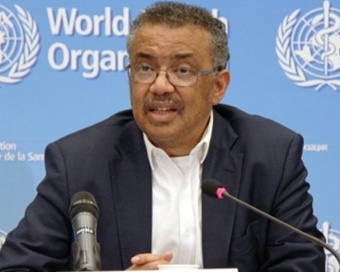Gallery
 PM Modi visit USA
PM Modi visit USA Only the mirror in my washroom and phone gallery see the crazy me : Sara Khan
Only the mirror in my washroom and phone gallery see the crazy me : Sara Khan Karnataka rain fury: Photos of flooded streets, uprooted trees
Karnataka rain fury: Photos of flooded streets, uprooted trees Cannes 2022: Deepika Padukone stuns at the French Riviera in Sabyasachi outfit
Cannes 2022: Deepika Padukone stuns at the French Riviera in Sabyasachi outfit Ranbir Kapoor And Alia Bhatt's Wedding Pics - Sealed With A Kiss
Ranbir Kapoor And Alia Bhatt's Wedding Pics - Sealed With A Kiss Oscars 2022: Every Academy Award Winner
Oscars 2022: Every Academy Award Winner Shane Warne (1969-2022): Australian cricket legend's life in pictures
Shane Warne (1969-2022): Australian cricket legend's life in pictures Photos: What Russia's invasion of Ukraine looks like on the ground
Photos: What Russia's invasion of Ukraine looks like on the ground Lata Mangeshkar (1929-2022): A pictorial tribute to the 'Nightingale of India'
Lata Mangeshkar (1929-2022): A pictorial tribute to the 'Nightingale of India' PM Modi unveils 216-feet tall Statue of Equality in Hyderabad (PHOTOS)
PM Modi unveils 216-feet tall Statue of Equality in Hyderabad (PHOTOS)The Badminton Association of India (BAI) has announced a 14-member-strong India squad for
- Men’s Sr Hockey Nationals to be played in division-based format from April 4
- Mensik denies Djokovic 100th title in Miami final
- KIPG: Son of a vegetable vendor, Bihar’s Jhandu Kumar eyes Worlds, 2028 Paralympics
- Hardik Singh credits hard work and team unity for receiving HI Midfielder of the Year award
- Djokovic, Alcaraz land in same half of Miami draw
Vaccine injustice is a shame on all humanity: WHO Last Updated : 19 Aug 2021 04:29:12 PM IST 
Vaccine nationalism by developed countries would prolong the Covid-19 pandemic, when it could be ended in a matter of months by sharing doses and scaling up manufacturing equitably, the World Health Organization (WHO) has said.
According to the WHO, just 10 countries have administered 75 per cent of all vaccine supply, while low-income countries have vaccinated barely 2 per cent of their people." Vaccine injustice is a shame on all humanity," said WHO Director-General Tedros Adhanom Ghebreyesus on Wednesday."If we don't tackle it together, we will prolong the acute stage of this pandemic for years when it could be over in a matter of months," Ghebreyesus added.Lashing out on nations who have and are planning to roll out booster vaccines against Covid, he said that the Delta variant is creating hotspots of hospitalisation and death in places with low levels of vaccination and limited public health measures.Last week, the WHO had called for a temporary moratorium on boosters to help shift supply to those countries that have not even been able to vaccinate their health workers and at-risk communities and are now experiencing major spikes.The global health body also led a team of 2,000 experts from around the world to debate on the available data on boosters.Ghebreyesus called out on manufacturers and leaders to prioritise supply to low- and middle-income countries over booster shots, to help bridge the gap between the haves and have nots."What is clear is that it's critical to get first shots into arms and protect the most vulnerable before boosters are rolled out," Ghebreyesus said."The virus is evolving and it is not in the best interests of leaders just to focus on narrow nationalistic goals when we live in an interconnected world and the virus is mutating quickly."In fact, strong national leadership would be to fully commit to vaccine equity and global solidarity, which would save lives and slow variants down," Ghebreyesus noted.The WHO aims to vaccinate 40 per cent of the population in every country by the end of 2021.Meanwhile, at an online briefing on Wednesday WHO Chief scientist Soumya Swaminathan stated that vaccination is imperative to prevent new variants as well as deaths."Vaccination can prevent new variants arising by reducing transmission, and reduce deaths by protecting the vulnerable. Two good reasons to ensure equitable vaccine distribution globally," Swaminathan tweeted.At the briefing, Maria Van Kerkhove, the WHO's technical lead on Covid-19 noted that while data from some countries indicate that the delta variant causes an increased risk of hospitalisation, it is preventing deaths."In terms of severity, we have seen some countries suggest that there is an increased risk of hospitalisation for people who are infected with the Delta variant. We haven't seen that translate to increased death," Kerkhove said, adding that people infected with the Delta variant "have not died more often than with the other strains".IANS Geneva For Latest Updates Please-
Join us on
Follow us on








172.31.16.186







